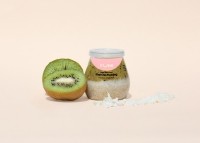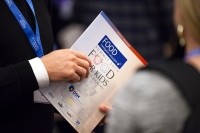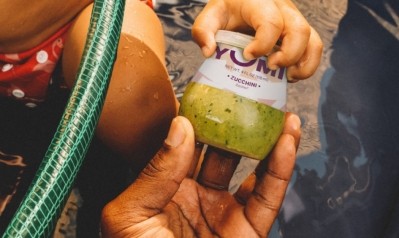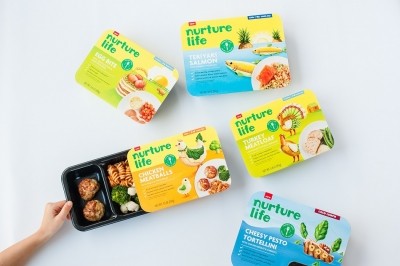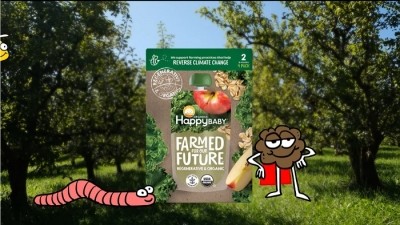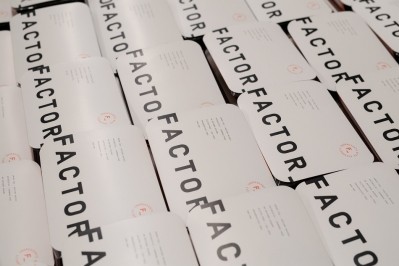Yumi raises $8m in funding, bolstering nationwide launch, proprietary software development, and expansion into finger foods
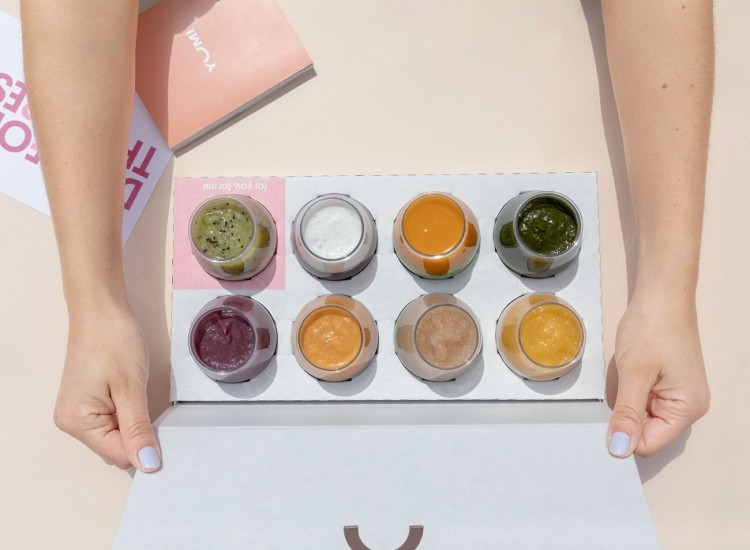
This round brings Yumi’s total funding to $12.1m; past investors in the brand include venture funds August Capital, Brand Foundry and Day One Ventures. Yumi president and co-founder Evelyn Rusli said that the most recent funding will go towards supporting the brand's national rollout and to further develop its proprietary software, which allows the brand to create personalized meal plans and educational content for their customers every week.
As an emerging direct-to-consumer (DTC) brand in the baby food space, it was imperative for Yumi founders Angela Sutherland and Evelyn Rusli to connect and tap into the strategic and operational guidance of other DTC brands that have redefined the customer experience across categories from eye wear and mattresses to sustainably-made shoes and razors.
"We essentially have this amazing brain trust of incredible founders and investors who’ve built some of the most meaningful brands in the DTC space for this new generation of consumers," Rusli told FoodNavigator-USA. Rusli explained that like its most recent investors, Yumi wants to do more than make fresh, nutritious baby food, but to break the mold by serving as a platform of science-based nutrition information that connects all the dots for parents to avoid going down the "long rabbit hole of Google."
"What it means to be a brand is being completely redefined in the sense of this generation of consumers is expecting a lot more out of experience. They want the brand that they purchase to really reflect their values and they want more out of that connection. You have to be more than a product on the shelf," Rusli said.
How does it work? Once a parent signs up for Yumi, the company uses proprietary algorithms and scientific data to customize their meal plans. Meals are made fresh weekly and mapped specifically to each child’s developmental stage, helping them power up on specific nutrients to support key milestones.
Beyond food delivery, Yumi parents receive educational content via text, email, and through their digital dashboards each week. The customized content is derived from an array of data points, including a child’s age, developmental stage, previous orders, and a parent’s interactions with the service.
"Because we’re DTC, we know so much about our customer beyond how old their kid is. We’re really there with them every week. We’re getting feedback from them in terms of which flavors they like the most or least, which ones they’re trying to customize and reorder for, and understand how they’re interacting with content -- are they more interested in articles around the advantages of cauliflower for your child," explained Rusli.
All of these insights gained through active customer engagement (Yumi has achieved over an 50% email open rate) assist with product development and formulation as well as predicting raw material ordering such as how much sweet potato the company needs in six weeks.
"You get all these insights that sometimes you don’t have when you go direct to retail. You just learn so much in such a short period of time about the preferences of your customer and it allows you to have a more efficient model."
Founded in 2017 and dismayed by the fact that there were more fresh pet food options than baby food available to consumers, Yumi entered the burgeoning category of fresh baby food with a DTC business targeting a new generation of consumers. Yumi’s more than 70 flavors of blended baby food and finger foods are never fortified, and contain no preservatives, added salts or sugars, according to the company.
"In many ways we're taking the 'baby' out of baby food"
It's easy to get lost in the kids' food category, especially as a new DTC brand such as Yumi. Rusli believes that to make it as fresh baby food brand, you have to higher level vision.
According to Rusli, Yumi is filling that consumer need by providing customers with a comprehensive nutrition program for babies and toddlers updated weekly based on science working with a team of doctors, certified nutritionists, and award-winning chefs to create baby food and curated content based on an array of data points.
It also helps that Yumi is focused on getting kids to love good food, especially vegetables, making its products adult-friendly too.
"We don’t market it to adults per se, but what we we’ve found is that people naturally use it for themselves," said Rusli. "In many ways, we’re taking the ‘baby’ out of ‘baby food’. It should be something as an adult you should also want to eat."
2020 pipeline
In effort to continue to meet parents' needs and solve for their pain points when it comes to feeding their kids, Yumi launched a line of easy to consume finger foods with the same ingredient and flavor philosophy as its spoonable blended products. Yumi's 'chickpea Panisse', for instance, created by James Beard award winning chef Edouardo Jordan contains chickpeas, garlic, black pepper, and sumac.
"A lot of parents were telling us that they wanted more options in this category, particularly as their child got older," said Rusli. "Parents are just so hungry for other options."
Yumi had a soft launch of its finger foods in a limited SKU set earlier in 2019.
"We’re heading into 2020 planning to expand that lineup," noted Rusli.
Have you heard about our FOOD FOR KIDS summit? Each year, over the course of three days, we dig into the trends, politics, and nutrition research shaping the future of the kids' food category.
